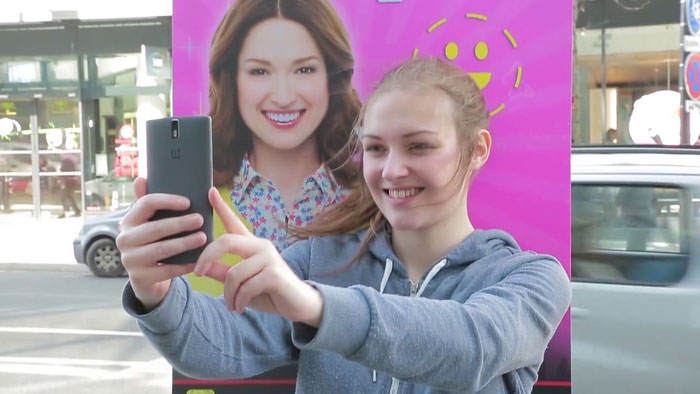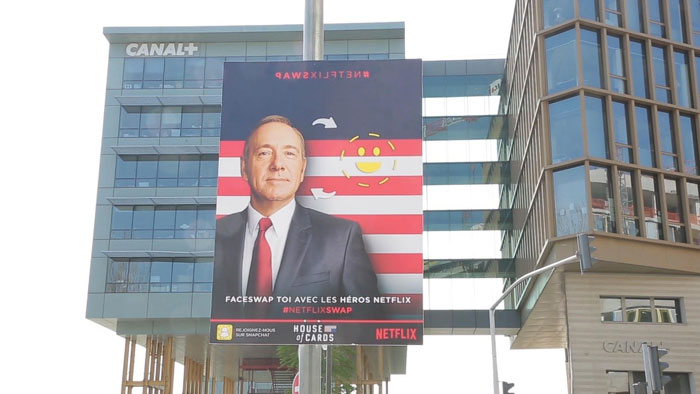Lennie Stern is Head of Creative and Entertainment Strategies, BETC Paris and a judge of the Effective Content Strategy category in the 2018 WARC Awards. She tells Lucy Aitken how being transparent about effectiveness will prompt further investment in user-centric content.
You have said: “My core expertise is to overcome adblockers by creating very super cool content that people are happy to watch, share, comment or whatever.” Please give me some examples of work that you’ve done recently that does this.
Before I joined BETC, when I was at entertainment agency Darewin, I worked on a Snapchat campaign for Netflix where people could swap their face with well known characters from Netflix shows.

It was a huge phenomenon in France and more widely in Europe. Even my mother was swapping faces with Frank Underwood and Piper Chapman and was inviting other people to do the same. In France, this was a huge social media campaign and it became a worldwide outdoor campaign.

To me, what’s interesting beyond creating engagement for Netflix was that this was a user-centric campaign that was shared all around the world. It was a great experience and a great way to connect with people and create emotional content that overcomes an adblocker. Secondly, utility is built into the content and this provides an opportunity for the brand to create more brand searches with their target.
Does content marketing often get misunderstood?
Yes, but it’s more mysterious than misunderstood. My job is to challenge brands and help them understand the importance of brand content. We love creative content so they see the opportunity to develop much more interesting content and longer form content. But still, a large part of our industry doesn’t think branded content leads to results. Content has to link to the business objectives and we can actually address those when you develop TV web series; we can directly make a link with the product. Today, we know that people aren’t watching advertising. They’re watching entertaining content so therefore we have to develop entertaining content that people will enjoy watching.
How do you define content marketing?
First, I prefer the term branded entertainment. - content marketing is more business- oriented - I love this definition as it’s a cool one: David Beebe, the former VP global and creative content marketing at Marriott International, thinks that content marketing is like a first date: if you only talk about your side, there won’t be a second one. To me, it’s the ability to develop content that’s not content marketing per se but which is entertaining work. There’s a shift that the brand has to make from a product objective to an engagement objective. Brands now have to be generous and not on an ego trip.
How easy is it for branded content to break through at a time when all channels are flooded with high quality unbranded content?
To me, the most important question is not about how much you produce but how you make it stand out. Creating great content needs to be consumer centric.
Do consumers care whether or not content is branded as long as it’s good?
Of course they care! We live in a world of content where they don’t think in terms of cool brand initiatives – they will just ignore you if it’s bad!
How do you measure whether or not branded content is effective?
The major issue we have to address is to link the emotional halo effect of this approach with the business results. If it’s a promotional content strategy of course you can link it directly to the results. But if it’s a matter of image and culture, to me, you have to step back and think that you are building for future of the brand and connect it with the target. I have this with Citroen because they are really active with branded content but each time we develop content for them, they are asking for business results and that’s difficult for us because you can’t sell a car through one branded content campaign.
This is common amongst clients that use traditional advertising only in a business perspective. However, if you’re working for brands like adidas and Nike who are really active with content marketing, they know how to judge the effectiveness. With food brands, for instance, it’s too difficult for them to understand that today they have to build it for the future.
What would you like to see in the case studies submitted for the Effective Content Strategy category at next year’s WARC Awards?
I’d like to see many case studies that make me feel very jealous and I’d also like to see cases that credit the media strategy and the creative strategy - the first can’t come without the second. I’d also like to see great results. More great results will convince clients to do more content.
The 2018 WARC Awards, a global search for next-generation effectiveness ideas, are now open for entries until 12 February 2018.
There are four categories: Effective Innovation, Effective Use of Brand Purpose, Effective Content Strategy and Effective Social Strategy. Like all WARC Awards programmes, entry is free.

